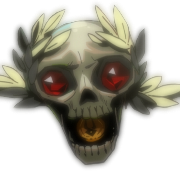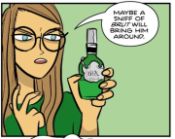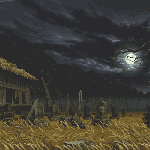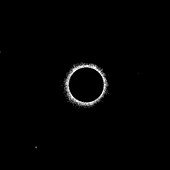|
nine-gear crow posted:And thus we cross the "Yeah, but nobody actually dies in these books" threshold... Ah, Dorath. Now this prick I remember.
|
|
|
|

|
| # ? Apr 27, 2024 13:13 |
|
nine-gear crow posted:And thus we cross the "Yeah, but nobody actually dies in these books" threshold... Quite a few of the good guys die in the last book, iirc.
|
|
|
|
Chapter 12: The Wagerquote:"WHAT, ARE YOU SO IMPATIENT to be gone, Lord Swineherd?" said Dorath, an edge of mockery in his tone. The dagger twirled in his hands and he clicked his tongue against his teeth. "Without a farewell? Without a word of thanks?" He shook his head. "This is grave discourtesy to me and to my men. Their feelings are tender. I fear you've deeply wounded them." Down a sword, but at least Taran's still alive. I say he held his own well enough, even with Dorath's cheating. Hemp Knight posted:Quite a few of the good guys die in the last book, iirc. C'mon, man. 
|
|
|
|
Probably the best outcome Taran could have hoped for. If heíd agreed to give up the sword, itís easy to imagine Dorath continuing to push for payment until he hit on something that would really pain Taran to relinquish.
|
|
|
|
I remember this book kind of bummed me out as a kid. I wasn't used to protagonists who kept losing, or where they're forced to choose among a range of bad options rather than the obviously good and correct one.
|
|
|
|
Pistol_Pete posted:I remember this book kind of bummed me out as a kid. I wasn't used to protagonists who kept losing, or where they're forced to choose among a range of bad options rather than the obviously good and correct one. Meanwhile, I read this book for the first time when I was starting university during the middle of the 00s/10s financial crash and was like "Oh, this is meant to prepare kids for how lovely real life is. I like this."
|
|
|
|
nine-gear crow posted:Meanwhile, I read this book for the first time when I was starting university during the middle of the 00s/10s financial crash and was like "Oh, this is meant to prepare kids for how lovely real life is. I like this." Oh yeah, as an adult I can read it and see how believable it all is: an idealistic boy riding out on a grand adventure and getting repeatedly smacked in the face by reality.
|
|
|
|
Chapter 13: The Lost Lambquote:UNDER FAIR SKIES and gentle weather, thecompanions traveled deeper into the Hill Cantrevs. Gurgi had bandaged Taran's wound and the smart of it eased more quickly than the sting of losing his sword. As for the bard, the encounter with Dorath had driven away his concern for the length of his ears; he hardly mentioned the word "rabbit," and had begun to share Taran's belief in a good ending to a hard journey. Gurgi still grumbled bitterly about the ruffians and often turned to shake an angry fist in the air. Fortunately, the companions had seen no more of the band, though Gurgi's furious grimaces might well have been enough to keep any marauders at a safe distance. We've met Craddoc! He seems much nicer than our last two encounters, at least, if not a bit rough around the edges. quote:The farmstead Taran saw to be a tumbledown cottage, whose walls of stone, delved from the surrounding fields, had partly fallen away. Half-adozen ill-shorn sheep grazed over the sparse pasture. A rusted plow, a broken-handled mattock, and a scant number of other implements lay in an open-fronted shed. In the midst of the high summits, hemmed in closely by thorny brush and scrub, the farm stood lorn and desolate, yet clung doggedly to its patch of bare ground like a surviving warrior flinging his last, lone defiance against a pressing ring of enemies. Craddoc, with a gesture almost of shyness and embarrassment, beckoned the companions to enter. Within, the cottage showed scarcely more cheer than the harsh land around it. There were signs Craddoc had sought to repair his fireplace and broken hearthstone, to mend his roof and chink up the crannies in the wall, but Taran saw the herdsman's labor had gone unfinished. In a corner a spinning wheel betokened a woman's tasks; but if this were so, her hand had ceased to guide it long since. ...quest complete?
|
|
|
|
You receive 350 experience points. Do you wish to (C)ontinue or (L)eave?
|
|
|
|
The end! No moral.
|
|
|
|
Lol. I mean, we can see as adults that we're not at the end of the book. If I'm honest, I don't remember reading it for the first time, just re-reading it. But on the face of it . . . what a twist!
|
|
|
|
Genghis Cohen posted:Lol. I mean, we can see as adults that we're not at the end of the book. If I'm honest, I don't remember reading it for the first time, just re-reading it. But on the face of it . . . what a twist! Taran: "So, you're my father! That's.... great."
|
|
|
|
Pistol_Pete posted:Taran: "So, you're my father! That's.... great." The ultimate "be careful what you wish for" outcome for poor Taran. But a great bit of foreshadowing/reinforcing of the main message of the book: You are shaped like yourself.
|
|
|
|
Taran's father is actually... emperor palpatine!!
|
|
|
|
Chapter 14: The End of Summerquote:IT WAS NEAR DAWN. The fire in the hearth had long since burned out. Taran rose silently. He had slept only fitfully, his head crowded with so many thoughts he could not sort one from another: Fflewddur's cry of astonishment, Gurgi's joyful yelps, Craddoc's embrace of welcome to a son he had scarcely seen, and Taran's bewildered embrace to a father he had never known. There had been harp playing and singing. Fflewddur had neverbeen in better voice or spirits, and the herdsman's cottage had surely never rung with so much merriment; yet Taran and Craddoc had been more quiet than gay, as if striving to sense each other's mind and heart. At last, all had slept. Taran stepped to the door. The sheep were silent in their fold. The mountain air was chill. Dew glistened, a net of cold silver on the sparse pasture, and the stones twinkled like stars fallen to earth. Taran shivered and drew his cloak about him. He stood a while in the dooryard before he sensed he was not alone. Fflewddur moved to join him. It's a bitter pill to swallow, but Taran's doing well, I think. quote:In the weeks that followed, Taran believed he could have fared no worse had Morda done as he had threatened. Tall gray summits rose about. him like the unyielding bars of a cage. Prisoner, he sought freedom from his memories in the harsh toil of the long days. There was much to be done, indeed there was all to be done; the land to clear, the cottage to repair, the sheep to tend. At first he had dreaded the dawns that brought him, weary as if he had not slept, from the straw pallet by the hearth to the seemingly endless labor awaiting him; but soon he rediscovered, as Coll had told him long ago, that he could force himself to plunge into it as into an icy stream, and find refreshment even in his exhaustion. With Gurgi and Craddoc, he strained and sweated to uproot boulders from the field and haul them to the cottage, where they would later serve to mend the walls. The spring where the sheep watered had dwindled to a slow trickle. Taran saw a way to unblock it, shore up the damp ground, and dig a channel which he lined with flat stones. As the sparkling stream rushed into its new course, Taran, forgetting all else, knelt and drank of it from his cupped hands. The cool draught filled him with wonder, as though never had he tasted water until now. At least Gurgi's happy!
|
|
|
|
Chapter 15: The Open Cagequote:THROUGHOUT SUMMER and fall the three had worked unstintingly to finish the cottage, their only refuge against the oncoming winter. Now, as the first snow whirled from the heavy sky to powder the crags with dry, white flakes, it was done. The walls of new stone rose firm and solid; the roof had been thatched anew and tightly chinked against wind and weather. Within, a fire cheerily blazed in the new hearth. The wooden benches had been mended; the door no longer sagged on broken hinges. Though Craddoc had given himself unsparingly to the toil, the cottage for the most part was Taran's labor. The rusted tools, sharpened and refurbished, served him to make what other tools he needed. The planning as well as the doing had been his, and as he stood in the dooryard, the fine snow clinging like chaff to his uncropped hair, it was not without pride that he watched the smoke rising from the rebuilt chimney. Craddock had come to stand beside him, and the herdsman put a hand fondly on Taran's shoulder. Perhaps. quote:SNOW TURNED THE GRAY summits glistening white, yet the tall peaks Taran once had seen as bars now shielded the valley from the brunt of the storms, and against the wolf-wind howling through the ice-bound passes the cottage stood fast. Late of an afternoon, when Craddoc and Gurgi had gone to see to the flock, the gale sharpened and Taran set about stretching a heavier sheepskin across the narrow window. He had only begun when the door was flung open as though ripped from its hinges. Shouting frantically, Gurgi burst into the cottage. A good man, Taran. A good man. quote:Taran's numbed fingers clutched vainly at an outcropping as a rock gave way beneath his feet. Downward he pitched, and cried out as a jagged stone drove against his chest. Black suns burst in his head and he choked with pain. Above, Gurgi was sliding down in a shower of ice and pebbles. Taran's heart pounded. He was on the ledge. Craddoc lay within arm's reach. Taran crawled to his side. Blood streamed down Craddoc's brow as the herdsman struggled to raise his head. The chapters with Craddoc are, I think, one of the more compelling parts of this book. Taran is forced to look at himself, properly, for the very first time, since setting out on his quest and even though it was a lie, and he isn't Craddoc's son, the fact that he lived for a time with the idea that he was is, and will be, very meaningful for him.
|
|
|
|
Itís a really good section! Iím also looking forward to what I know comes next, but Craddoc is such a good contrast to the portion with Smoit offering to adopt Taran and Taran turning it down. The ongoing quest to find out who he is is just very well done - itís got enough complexity that as a child reading it, youíre not always quite sure where itís going and as an adult, you can see how all these lessons are piling up in different ways and you start to suspect you know what the mirror of Llunet is going to be, and what itís going to reveal to Taran.
|
|
|
|
Coca Koala posted:Itís a really good section! Iím also looking forward to what I know comes next, but Craddoc is such a good contrast to the portion with Smoit offering to adopt Taran and Taran turning it down. The ongoing quest to find out who he is is just very well done - itís got enough complexity that as a child reading it, youíre not always quite sure where itís going and as an adult, you can see how all these lessons are piling up in different ways and you start to suspect you know what the mirror of Llunet is going to be, and what itís going to reveal to Taran. Rian Johnson gave an interview about The Last Jedi once where he talked about Rey's arc over the course of the movie and the reveal at the end of the second act and it reminded me so much of the Craddoc section of Taran Wanderer. He said that when it came to who her parents were and where she came from, especially for a person like her who was trying to use a perceived lineage or connection to someone or just something important as a panacea for all her worldly woes, the answer she receives should be the hardest one for her to deal with: you are nobody, and your parents were nobodies too (followup retcons not withstanding). Taran effectively gets the same gut punch here. His whole quest is initially tied to the delusional promise that he's got to be descended from someone or something important and it'll fix everyone and tell him who he is and give him the go ahead to pursue Eilonwy romantically and then Craddoc comes along and rips his legs out from under him and confirms, at least initially, the worst fear that was silently driving him forward: you are no one of nothing from nowhere. Of course then Craddoc's like "lol jk, I'm gonna die now bye" and throws his whole identity for a loop a second time around, and priming his eventual reaction once he finally reaches the Mirror of Llunet. And unlike Star Wars, there's no JJ Abrams around to pussy out of it at the last second like a bitch hack.
|
|
|
|
Chapter 16: Taran Wanderer Title drop! quote:FEVER CAME, SWEEPING over him, a blazing forest through which he staggered endlessly; tossing on the straw pallet, he knew neither day nor night. Often there were dream faces half-glimpsed, half-recognized, of Eilonwy, of his companions, of all whom he had loved; yet they slipped away from him, shifting and changing like wind-driven clouds, or were swallowed by nightmares that made him cry out in terror. Later, he seemed to see Fflewddur, but the bard had turned gaunt, hollow-eyed, his yellow hair matted on his forehead, his mouth pinched and his long nose thin as a blade. His garments hung ragged and stained. And there you have it. quote:THE COMPANIONS WINTERED in the cottage, and little by little Taran's strength came back. At the first thaw, when the valley sparkled with melting snow and the streams burst from their ice-bound courses, Taran stood silently in the dooryard and looked at the pale green summits, pondering what had long been in his heart. The road goes ever on and on, down from the door where it began. quote:SINCE NEITHER TARAN nor Gurgi wished to leave the sheep behind, the wayfarers departed from the valley with the small flock bleating after them. Taran intended offering the animals to the first farmstead with good grazing land, yet several days passed and he saw no inhabited place. The two companions had started in a southeasterly direction, but Taran soon gave Melynlas free rein and, though aware the stallion was bearing more east than south, he paid little heed until they drew near the banks of a wide, rapid-flowing river. Here, the pasture stretched broad and fair. We meet Llonio and his family - who seem to have invented the frittata, or maybe a crust-less quiche, in Prydain purely by what's on hand. I love this guy.
|
|
|
|
This is probably my favourite stretch of the whole series coming up. I can't remember it it's all one section or diffused across the rest of the book, but Taran In The Village is just beautiful. A great "rebuilding the hero" sequence after brining him to his lowest point right here.
|
|
|
|
Yeah Iím pretty sure from here on out itís all just so good. Taranís gone out, been offered what he thought he wanted, found what he thought he wanted, and discovered it all doesnít mean anything to him. Now heís gotta figure out where he goes from here. Taran Wanderer indeed.
|
|
|
|
Chapter 17: The Weirquote:WHILE GURGI LINGERED in the cottage, Taran followed Llonio to the riverbank. On the way, whistling merrily through his teeth, Llonio stopped to peer into the baskets, and Taran noticed one of them held a large bee hive undoubtedly the source of the honey which had sweetened Goewin's cake. The rest, however, stood empty. Llonio merely shrugged his shoulders. There's a lesson anybody can benefit from. quote:So saying, he clambered nimbly onto the weir, which Taran now saw was made not to bar the flow of water but to strain and sift the current. Balancing atop this odd construction, seeming more cranelike than ever as he bobbed up and down, bending to poke and pry among the osiers, Llonio soon gave a glad cry and waved excitedly. Taran hurriedly picked his way across the dam to join him. His face fell, however, when he reached Llonio's side. What had caused the man's joyful shout was no more than a discarded horse bridle. And so's this one, for that matter. Llonio's a smart guy.
|
|
|
|
Another nice (and rather more cheerful) lesson. I do question how well you can feed and clothe a family by that kind of foraging though, and you certainly might hesitate before taking in two adult strangers to share the food! For that matter, didn't Gurgi used to have an everlasting pouch of food? Seems like it might have come in handy here.
|
|
|
|
Genghis Cohen posted:Another nice (and rather more cheerful) lesson. I do question how well you can feed and clothe a family by that kind of foraging though, and you certainly might hesitate before taking in two adult strangers to share the food! Interesting question. No doubt the description of Llonioís lifestyle is romanticised a bit (in reality itíd be somewhat harder work than described, and likely require hunting of deer, rabbits, etc to feed the family), but Iíve read elsewhere that the hunter/gatherer life is actually easier than farming. While farming is more reliable as a source of food, itís also much harder and more time consuming. Hunter/gatherers apparently only need to work for something like 4 hours a day to feed a family.
|
|
|
|
Man, that Llonio section all came rushing back into my head as I was reading along with it. What a charming change of pace from Craddoc - as a child I remember being very enchanted with Llonio's attitude of "Anything that shows up, view it in the most positive light and find a way to put it to use".
|
|
|
|
Hemp Knight posted:Interesting question. That's a fair point though. I think you would need to be at least semi-nomadic though, because you'd forage out your local environment otherwise. I also think it might only be viable in certain environments - not sure I'd like to try it in 'basically Wales' which is what Prydain is.
|
|
|
|
Genghis Cohen posted:Another nice (and rather more cheerful) lesson. I do question how well you can feed and clothe a family by that kind of foraging though, and you certainly might hesitate before taking in two adult strangers to share the food! Craddoc should've just moved to their neck of the woods, where life appears to be easy, rather than shivering in the mountains and eating the lichen he'd scraped off rocks with his fingernails imo.
|
|
|
|
This thread is a delight. I loved these books as a kid, and now I'm finally caught up to the current posts. Looking forward to whatever we get post-Llonio, which I don't remember. And I enjoyed the Disney movie, save Fflewdur -- I always see him as more of a young David Bowie than an old rando. I wish Brad Bird, Don Bluth, or somebody else had gotten ahold of this and made the animated film[s] it deserves
|
|
|
|
I never saw the movie, but I remember having some kind of thin picture book version of it as a child, which had stills from the movie along with a very brief summary of the major scenes. 35 years or so later, this is still how I imagine Gurgi: 
|
|
|
|
Comrade Koba posted:I never saw the movie, but I remember having some kind of thin picture book version of it as a child, which had stills from the movie along with a very brief summary of the major scenes. The Disney picture book was my first encounter with the Black Cauldron and Pyrdain series as well. Because Disney vaulted the film after it bombed and never released it on home video, the book was my only experience with the story and being an idiot child I had no idea it was based on another more readily available version of the story. So I made my mother read it to me a few times and was enthralled because going off the still images in the book it looked like a loving awesome movie and the Disney version of the Horned King was a really great design. So I always wondered why it was the one Disney movie we never had on VHS despite having everything from Snow White onward, and later found out that it was a box office bomb and Disney damnatio memoriae'd it because lol capitalism lol Michael Eisner. Finally got to watch a pirated copy of the movie in the mid 2000s and then bought and read the books a couple years after that. It's... fine? Certainly not bad enough to warrant Disney burying it in cement for nearly 30 years, but whatever. I also still see the Disney versions of Taran, Gurgi, Eilonwy and Dallben whenever I picture them in my head when I read the books. Fflewdur is the one I struggle with for the same reasons as beauty queen breakdown mentioned: the old rear end man image is so burned into my brain that I need to constantly remind myself that he's supposed to look like Balthier from Final Fantasy XII or something. nine-gear crow fucked around with this message at 09:03 on Feb 10, 2024 |
|
|
|
Between the cartoon and too much Elden Ring I imagine Gurgi as a cuter combination of: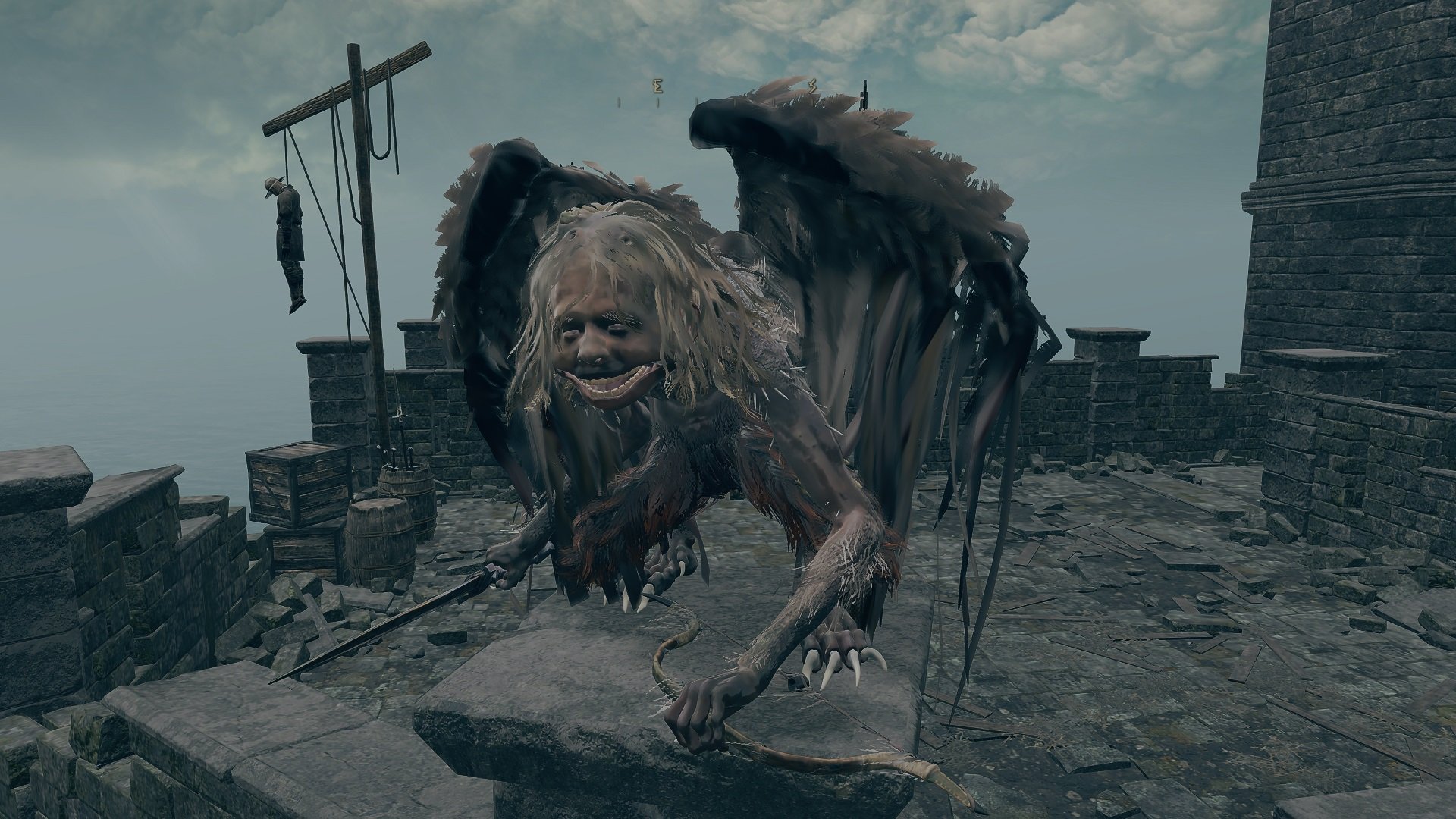 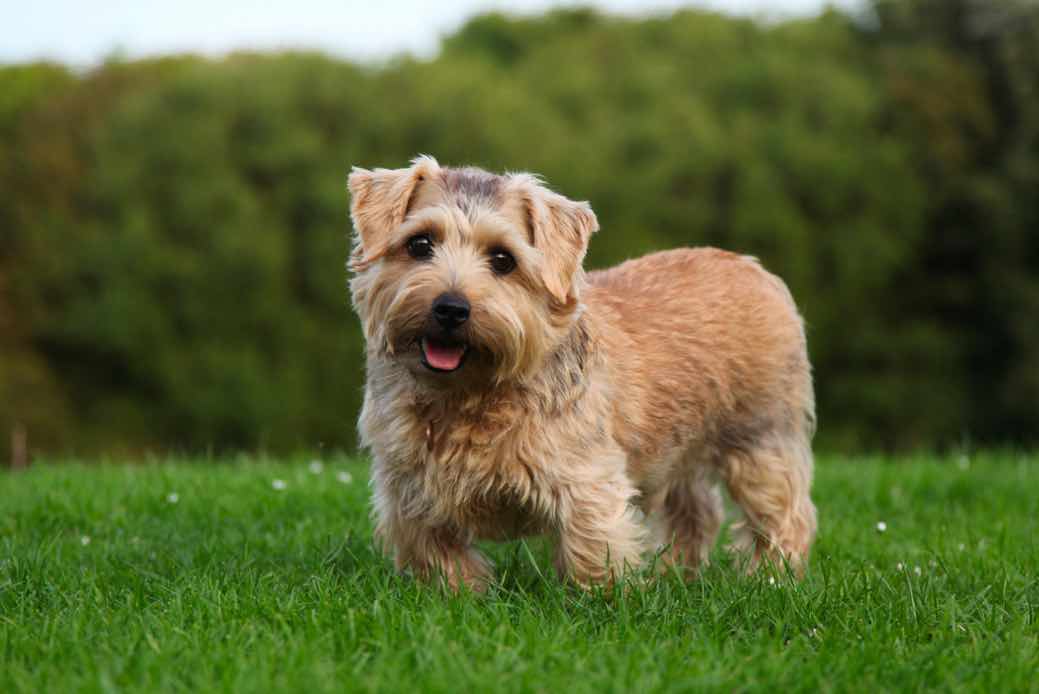
|
|
|
|
I just think of Gurgi as a shorter, scruffier/shaggier haired version of Chewbacca. Isnít he basically meant to be a dog, like Chewie?
|
|
|
|
Hemp Knight posted:I just think of Gurgi as a shorter, scruffier/shaggier haired version of Chewbacca. Does that not describe Gilgameshís best buddy Enriqu(?)?
|
|
|
|
Comstar posted:Does that not describe Gilgameshís best buddy Enriqu(?)? Enkidu?
|
|
|
|
Chapter 18: The Free Commotsquote:FROM SMALL AVREN THEY WENDED eastward at an easy pace, halting as it pleased them, sleeping on the turf or sheltering at one of the many farmsteads among the rich green vales. This was the land of the Free Commots, of cottages clustering in loose circles, rimmed by cultivated fields and pastures. Taran found the Commot folk courteous and hospitable. Though he named himself only as Taran Wanderer, the dwellers in these hamlets and villages respected his privacy and asked nothing of his birthplace, rank, or destination. Taran and Gurgi had ridden into the outskirts of Commot Cenarth when Taran reined up Melynlas at a long, low-roofed shed from which rang the sound of hammer on anvil. Within, he found the smith, a barrel-chested, leather-aproned man with a stubbly black beard and a great shock of black hair bristly as a brush. His eyelashes were scorched, grime and soot smudged his face; sparks rained on his bare shoulders but he seemed to count them no more than fireflies. In a voice like stones rattling on a bronze shield he roared out a song in time with his hammer strokes so loudly that Taran judged the man's lungs as leathery as his bellows. While Gurgi cautiously drew back from the shower of sparks, Taran called a greeting, scarcely able to make himself heard above the din. And so comes the first quest to an end, with no real answer but the one that tells Taran what he is not. quote:WITH HEVYDD THE SMITH waving a sooty hand in farewell, the companions traveled on, bearing northward along the rich valley of Great Avren. A few days of easy riding through pleasant countryside brought them to the edge of Commot Gwenith. Here, a shower suddenly began pelting down on them, and the wayfarers galloped for the first shelter they could find. It was a cluster of sheds, stables, chicken roosts, and storehouses seeming to ramble in all directions, but as Taran dismounted and hastened to the cottage amid the maze of buildings, he realized all were linked by covered walkways or flagstoned paths, and whichever he followed would sooner or later have brought him to the doorway that opened almost before he knocked on it. What tangled webs you weave for yourself, Taran. quote:TARAN AND GURGI SET OFF again, still journeying northward, and soon Commot Gwenith was far behind them. Though Taran wore his new cloak on his shoulders and his new blade at his side, his pleasure in them shortly gave way to disquiet. The words of Dwyvach lingered in his mind, and his thoughts turned to another loom in the distant Marshes of Morva. What do you think, folks? Third time's the charm?
|
|
|
|
Take me down to Commot Merin, where the grass is green and the girls are starin'
|
|
|
|
Chapter 19: The Potter's Wheelquote:"I'VE TOLD YOU WHERE you are," the man went on good-naturedly, as Taran dismounted at the bank of the stream. "Now might you be willing to tell me who you are, and what brings you to a place whose name you must ask? Have you lost your way and found Merin when you sought another Commot?" Quest...complete? quote:ANNLAW WAS AS GOOD as his word. In the days that followed, the potter showed Taran skills no less important than the working of the clay itself: the finding of proper earths, judging their texture and quality, sifting, mixing, tempering. Gurgi joined Taran in all the tasks, and soon his shaggy hair grew so crusted with dust, mud, and gritty glaze that he looked like an unbaked clay pot set on a pair of skinny legs. A bitter lesson to be learned once again. Sorry, Taran.
|
|
|
|
I remember none of this book and I think as a kid it probably escaped me, but this is excellent .
|
|
|
|
Itís so, so good. The life lessons come thick and fast, Taran earns every inch of growth and development and without being cloying or patronising, it is never mean spirited or cynical either.
|
|
|
|
|

|
| # ? Apr 27, 2024 13:13 |
|
The one lesson that I think gets hammered a little hard is probably also the lesson that's the most abstract for Taran, and by extension, the children who are the audience - every single person Taran meets has some story along the lines of "yes, I do $JOB to survive and yes, there was an enchanted tool that makes $JOB easy as gently caress, and YES that tool is in Arawn's keep and we're probably never going to see it again. But listen, and listen hard, kiddo, somewhere deep in Arawn's keep is a book that tells us how to do $JOB better than I can possibly imagine and if we can only get our hands on that book, the magical tools can burn in a fire and I won't give a gently caress because if I can learn how to do this thing better, the tool won't be any help to me".
|
|
|




